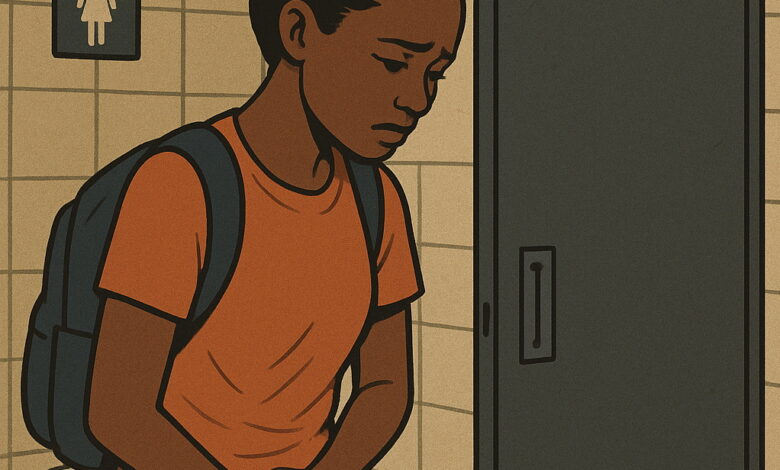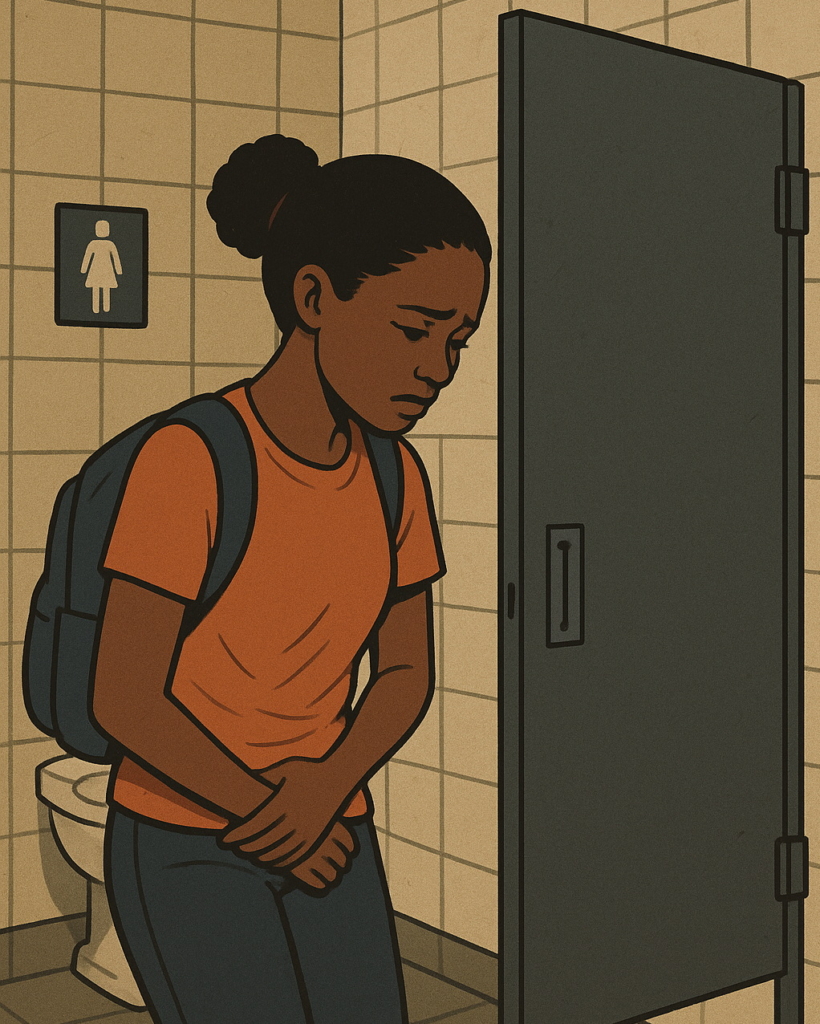Student Ladies, Washrooms, and Deprived Dignity


The Sustainable Development Goals (SDGs) 4, 5, 6, and 10 variously highlight the importance of equality, with Goals 4 and 5 in particular drawing attention to equal access to education. Yet, like many aspects of human life, access to education is not gender neutral—even when at face value it appears to be so. This is well-recognised in policy and academic discourse. One of the more overlooked areas where inequality is stark is in the question of access to clean water and sanitation within educational institutions.
I have always had a particular sensitivity to sanitation issues. In July, I attended the National Sanitation Day in Bolgatanga, which reinforced my concerns. For me, washrooms are a litmus test of care and dignity: they are the first thing I check when I enter any hotel or guesthouse, even before food and bed. They are, in my view, a measure of order in any institution.
Earlier this week, while working at a centre’s library within a public university in Accra where I occasionally retreat to study, I had an experience that left me both furious and deeply saddened. The centre is located next to one of the university’s largest lecture halls. Its washrooms are generally neat—particularly the ladies’ facilities—and they have increasingly attracted students from the lecture hall because that facility’s own washrooms frequently have no water and are often locked. Based on my own observation, roughly seven out of ten of these students who come to the centre to request to use the washroom are females. The males can easily turn to the bushes around.
For a very long time, this centre had accommodated every student who came to use their washroom. However, faced with rising costs from buying extra water out of their little imprest, the centre’s management decided to lock its washrooms to all outsiders and restrict access solely to its own students. While this decision might make financial sense, the wahala is nonetheless reflective of a broader systemic failure of how we manage our educational facilities as a country.
On three different occasions, I helped three students to use the facility because I was on my way to the washroom anyway (and the washroom has one main door that opens to separate units for women and men). The breaking point for me came on Tuesday, 19 August 2025 – and this provoked/nudged me to write this piece. Whilst seated in the centre’s library, I heard a young woman ask if she could use the washroom.
Knowing that the new “locked” policy was in force and wanting to use the washroom myself (something men in their mid-fifties regularly do), I took a faculty member’s bunch of keys, but for a minute struggled to find the right one to open the door. This faculty member is a good friend – anyway. As I wrestled with the lock, this young lady told me she had already tried all the surrounding washrooms, walking around for a while (about ten minutes), but all were closed. Finally, she admitted that she had urinated on herself. My heart sank. This is dignity-deprived, I said within myself.
I was shocked. For a young woman in her early twenties, in one of the country’s top universities, to experience such humiliation simply because of locked washrooms (or lack of access to sanitation and clean water) is indefensible. Moreover, for her to share with me—a complete stranger—that she had urinated on herself spoke volumes about her pain, desperation and frustration. It hurt me. After using the washroom, she thanked me repeatedly, saying, “God bless you, sir, God bless you.” I felt a mixture of anger and sorrow that, in a country where we tout our commitment to the SDGs and criticise governments for their failures, something as basic as a functioning and accessible washroom could be denied to students.
For female students, the implications are severe. Men, in the most urgent circumstances, have more “options,” but women are constrained by anatomy and by social norms. A locked washroom can mean lost study time, missed lectures, disrupted examinations, or worse. The situation is even more dire for those managing menstruation, and for students with disabilities who require special access. This is not merely about the decision of one centre to lock its doors. It speaks to the broader infrastructural deficit in our educational facilities that sometimes undermines the dignity of students.
The health implications of poor sanitation and lack of clean water are also considerable, ranging from urinary tract infections to increased stress and anxiety. Research such as that of Adewusi and Oguntokun (2024) underscores the fact that the accessibility of public conveniences directly impacts the learning environment in higher education. A student denied access to safe and clean facilities (sanitation and clean water, for example) is denied more than comfort—they are denied equal opportunity to learn, to excel, and to live with dignity.
It is not enough to look to administrators alone. Students themselves must also use these facilities responsibly when they are provided. As an Akan proverb reminds us, “Sε woretu agyinamoa foa, tu mↄmↄne nso fo”— when cautioning/advising the cat, caution/advise pickled-fish as well” (non-Ghanaian readers should ask their Ghanaian friends what mↄmↄne is – and it is definitely not rotten, stinky fish, please. Maybe, the closest is pickled-fish?).
All said and done, the ultimate responsibility must rest with governments (institutions and oversight bodies) to really prioritise education, in every sense of the word. Students cannot be expected to bear the burden of systemic neglect. One radical short-term solution is this: Mobilisation by students —online and in person—has historically been an effective means of demanding basic rights, and perhaps it is time to consider such action once again. This kind of student activism is called Aluta! [ For effective Aluta planning and execution at strategic, tactical and operational levels, talk to Elvis A. Ankr…, Chancellor Opong K. Kohl, and Magas – and other old chief vandals, etc]
Access to clean washrooms in educational institutions is not a luxury. It is a basic human right, one that disproportionately affects women and persons with disabilities. Until it is treated as such, we shall continue to undermine the very goals—education, gender equality, health, and reduced inequalities—that we claim to champion.
In an era where National Security (NS) is used to justify the prioritisation of almost everything (and some of these are definitely not NS matters), budget allocations for education and a robust scrutiny of how those public funds are used and facilities managed are certainly a National Security Matter – in every sense of the word. These matters are also not gender neutral (and Ghana in particular should always remember its history with CEDAW, 1979). Do I need to explain the last point? My good friend Lawyer Osie Tutu will respond by saying Res ipsa loquitur!
Next time you go to an educational (and other public) facility, examine access to and the condition of their washrooms from a gendered perspective and that of people with disability/special needs; and then write an opinion piece. Hopefully, we will gradually mobilise ourselves to demand more accountable educational governance and leave a good legacy and better facilities for future generations (if the Lord tarries). Don’t stand and stare!
Emmanuel Sowatey is a criminologist and holds a PhD from the University of Cambridge) email: emmanuel.sowatey@gmail.com
Wednesday, 20 August 2025. xx
DISCLAIMER: The Views, Comments, Opinions, Contributions and Statements made by Readers and Contributors on this platform do not necessarily represent the views or policy of Multimedia Group Limited.
DISCLAIMER: The Views, Comments, Opinions, Contributions and Statements made by Readers and Contributors on this platform do not necessarily represent the views or policy of Multimedia Group Limited.
Source link





